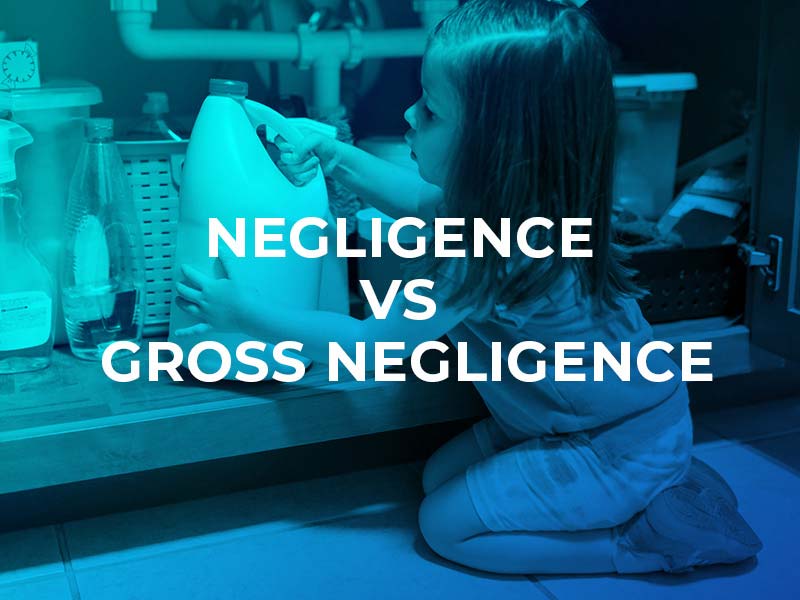Different Between Negligence and Gross Negligence
If someone is injured due to the negligent actions of another person, company, or entity, they are generally entitled to compensation for their losses. However, two terms often appear in legal documents and discussions of legal matters that may seem confusing – “ordinary negligence” and “gross negligence.” Understanding the difference between these two is crucial. Depending on the facts of someone’s personal injury case, the type of negligence involved could play a role in how much compensation they receive.

What is ordinary negligence?
Ordinary negligence (typically just referred to as negligence), is the failure of one party to use the level of care and caution that an ordinary person would use under similar circumstances. Negligence often leads to serious harm or injury to another person. Negligence is based on the premise that people should always consider the foreseeable impacts their actions could cause harm to another person and act in ways to avoid such actions.
A few examples of negligence could include:
- A driver who speeds through a school zone and strikes a child.
- A grocery store worker failing to put up a “Wet Floor” sign after mopping a spill.
- A fast-food worker failing to secure a lid on a hot cup of coffee.
In these examples, the negligent party never intended to cause harm. However, their actions can result in injuries to another person. The intent that someone has is what separates negligence from gross negligence.
What is gross negligence?
Gross negligence is a willful or extreme disregard for other people’s safety and health. This happens when a rational and prudent person performs an action they are well aware will cause injuries to another person.
Some examples of gross negligence could include:
- A driver speeding through a crowd of pedestrians.
- Nursing home staff failing to provide food, water, or medication to a resident for several days.
- A doctor prescribing a medication that will clearly react with another medication the patient is already taking.
The difference between these two matters
The basic difference between negligence and gross negligence is the intent a person has when the incident occurs. While it is sometimes easy to determine a person’s intent, in other cases, the incident must be thoroughly investigated.
When a person is injured due to another person’s ordinary negligence, they may be entitled to compensation for what has happened. This could include:
- All of your medical expenses
- Lost income if you cannot work
- Pain and suffering damages
- Loss of enjoyment of life damages
If a person is injured due to the gross negligence of someone else, they may also be entitled to punitive damages intended to punish the wrongdoer and to discourage that person from doing the same thing in the future.
For example, most car accidents typically involve negligence on the part of a driver, such as failing to yield the right-of-way. However, a car accident caused by a drunk driver may be considered gross negligence.
Another example of negligence could be a construction company that unintentionally supplies a worker with a faulty tool that causes harm. However, if the company knew that the tool was faulty and took no steps to fix it or warn the employee, this could be considered gross negligence.
An Atlanta personal injury attorney can help you sort through the facts if your case by performing a thorough investigation of the incident.